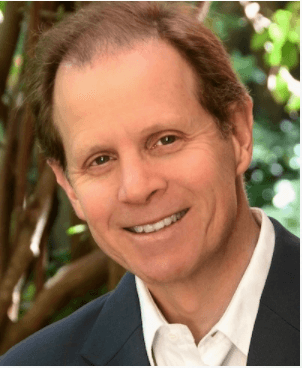
Earlier this month, Esalen welcomed some of the most exciting voices in mindfulness today for two week-long workshops: The Art and Science of Mindfulness, Compassion and Awe and Loving Awareness. We recently spoke with Dan Siegel, author of the upcoming Aware: The Science and Practice of Mindfulness, and Dacher Keltner, founder of the Greater Good Science Center, who co-led with Shauna Shapiro the first workshop from August 5-10.
Esalen News: What happened during The Art and Science of Mindfulness, Compassion and Awe?
Dan: The workshop was a deep dive into the study of mindfulness and attention, and the exploration of mindfulness and states of kindness in regards to oneself. My co-leaders Shauna Shapiro and Dacher Keltner are doing some fascinating work in the areas of gratitude and awe.
We also explored new ways of looking at the mind and how to integrate consciousness which is part of the work I’m doing now. Workshop participants had a real opportunity to cultivate their own well being as well as their understanding of well being.

Dacher: I have found that when you really think of the concept of mindfulness, of compassion or awareness, of awe — suddenly your daily life feels richer. My hope is people came away from the workshop with actionable ways to promote feelings of gratitude or awe in their daily lives. You don’t have to approach this as some kind of mystic who has to pull yourself of our world to get to this state; it should be a part of the recipe of life.
Esalen News: Much has been written recently about the power of awe and how it relates to our sense of well being. What is it? When have you experienced it?
Dacher: Awe is an emotion that we feel in the presence of things that are vast and transcend our senses and frame of reference. We can’t immediately explain it based on our current knowledge of the world.
Dan: When I’m at Esalen, and when I’m in Big Sur, I get a sense of awe. This overlaps with my work with the Wheel of Awareness practice as there’s a moment when you explore the hub of the wheel, and in that hub, you experience a deep sense of connection and gratitude. Many people share having a big feeling of awe in this moment.
Esalen News: Why do we need awe in our lives?
Dacher: There are so many different ways to answer that question. Certain strains of philosophy reference moral emotions that are the foundation of a good life: compassion, gratitude, and awe. Thinkers from Pythagoras to Einstein have written that without awe, life is impoverished.
A more immediate answer I’ve shared when I’ve taught at Esalen is that awe has emerged in evolution to help us become social communities. It helps to reduce or diminish our sense of self, making us feel humble and appreciative, while also making us kinder, more charitable, and cooperative. These are two good reasons we need more awe today — to help us become less of a self-focused society and make us better citizens.
Dan: Part of the journey to explore the mind is to drop out of a fixed view and instead say, “Oh wow, my mind is broader than my brain”. The self is bigger than just the body, and when we start feeling that and can look at another human being and realize that you’re looking at just an extension of yourself, then we begin to view things in what I call M/We.
I think humanity has a real challenge in that we’re born with a nervous system that has a propensity for “in group/out group” distinguishing. What that means is in our early development we quickly see who is similar to us and dissimilar to us. Then when we do that, we unfortunately dehumanize those we deem not similar to us and humanize those we deem similar to us. Einstein spoke of widening our circles of compassion from those who are similar to us to all things in order to have a larger view of who we are. We have some collective work to do.
Esalen News: Dan, it’s been almost 10 years since you first wrote Mindsight. How has our awareness of awareness changed?
Dan: I think it has changed quite a lot and in some very interesting ways. People in our contemporary culture are realizing we do have a very important responsibility with each other to wake each other up. And now there is this curiosity and hunger for practical ways to cultivate your mind, to expand your awareness. When I was writing my new book Aware I wanted to really look at the nature of awareness. It’s a really beautiful time, scientifically, clinically, and educationally, to be looking at these issues together.
Esalen News: How is Aware different than your previous books?
Dan: If you consider that awareness comes from a plane of possibility, a sea of potential, a quantum vacuum — if that is true, there are amazing implications to the notion of feeling fullness and emptiness simultaneously. When people drop into this place, they feel a sense of love and closeness. In the book we discuss as people start to practice the Wheel of Awareness they realize they can experience more than just glimpses of this, it can be a new way to live in the world and feel connected.
Esalen News: Dacher, where is your work with the Greater Good leading you?
Dacher: I think it encompasses both the mundane and spiritual. One thing that we’re working on is how do people train the mind to become more aware of awe. We are starting to test things; for example we have some really cool data about how people over the age of 75 can reduce their depression and anxiety when they participate in awe walks. I think there’s this other close-by space related to awe which is ecstacy and joy. It is the idea of totally losing a sense of self and merging into something greater than self. That will be one of the final realms I work on.
We’re also going to be launching a MOOC next month on happiness at work and I’ll be continuing my podcast, Science of Happiness, with PRI.
Learn more about Dan Siegel's new book, Aware.
Visit the Greater Good Science Center.

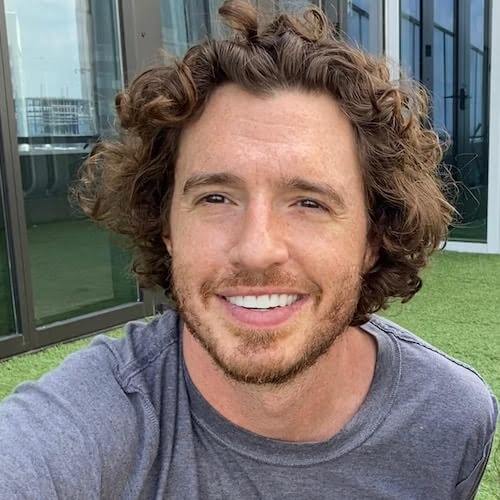
“Remembering to be as self compassionate as I can and praying to the divine that we're all a part of.”
–Aaron
“Prayer, reading, meditation, walking.”
–Karen
“Erratically — which is an ongoing stream of practice to find peace.”
–Charles
“Try on a daily basis to be kind to myself and to realize that making mistakes is a part of the human condition. Learning from our mistakes is a journey. But it starts with compassion and caring. First for oneself.”
–Steve
“Physically: aerobic exercise, volleyball, ice hockey, cycling, sailing. Emotionally: unfortunately I have to work to ‘not care’ about people or situations which may end painfully. Along the lines of ‘attachment is the source of suffering’, so best to avoid it or limit its scope. Sad though because it could also be the source of great joy. Is it worth the risk?“
–Rainer
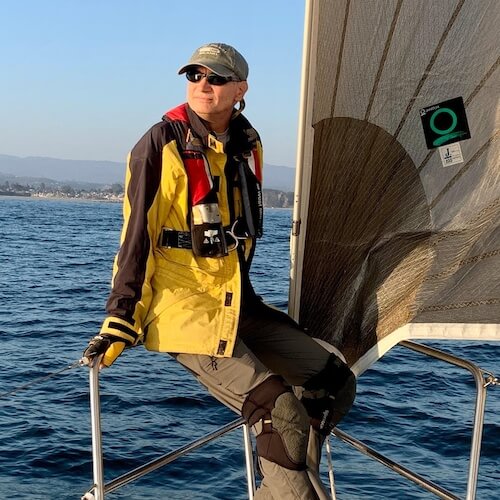
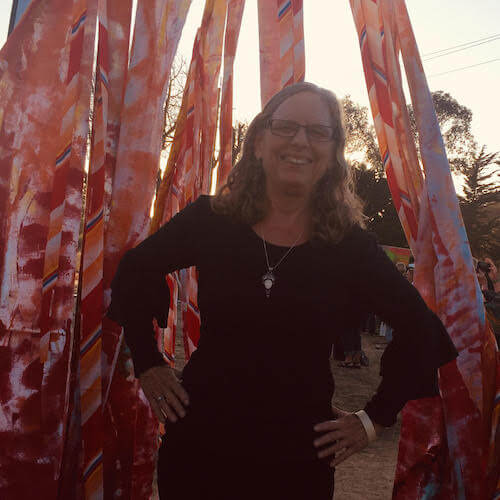
“It's time for my heart to be nurtured on one level yet contained on another. To go easy on me and to allow my feelings to be validated, not judged harshly. On the other hand, to let the heart rule with equanimity and not lead the mind and body around like a master.”
–Suzanne
“I spend time thinking of everything I am grateful for, and I try to develop my ability to express compassion for myself and others without reservation. I take time to do the things I need to do to keep myself healthy and happy. This includes taking experiential workshops, fostering relationships, and participating within groups which have a similar interest to become a more compassionate and fulfilled being.“
–Peter
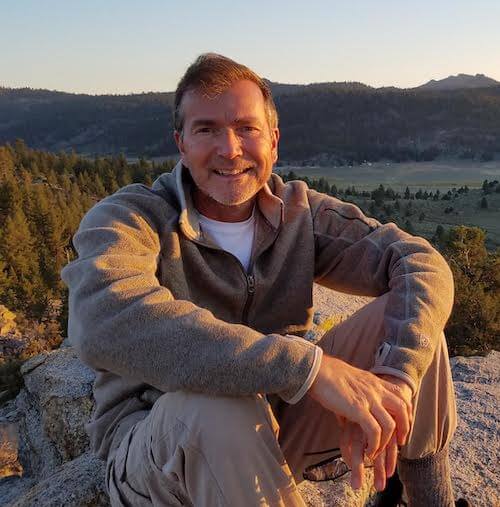
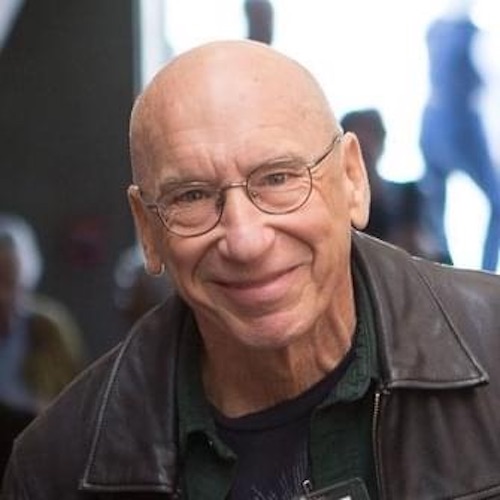
“Self-forgiveness for my own judgments. And oh yeah, coming to Esalen.”
–David B.
“Hmm, this is a tough one! I guess I take care of my heart through fostering relationships with people I feel connected to. Spending quality time with them (whether we're on the phone, through messages/letters, on Zoom, or in-person). Being there for them, listening to them, sharing what's going on with me, my struggles and my successes... like we do in the Esalen weekly Friends of Esalen Zoom sessions!”
–Lori
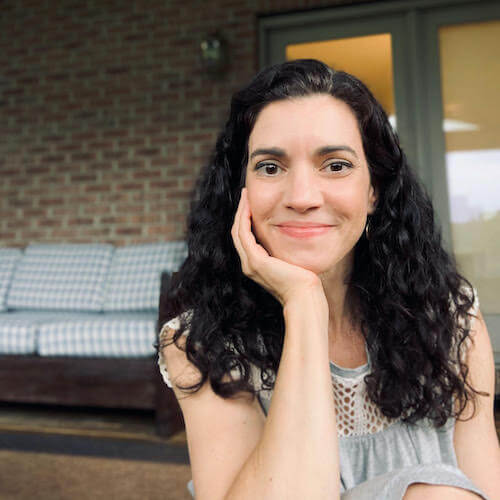
“I remind myself in many ways of the fact that " Love is all there is!" LOVE is the prize and this one precious life is the stage we get to learn our lessons. I get out into nature, hike, camp, river kayak, fly fish, garden, I create, I dance (not enough!), and I remain grateful for each day, each breath, each moment. Being in the moment, awake, and remembering the gift of life and my feeling of gratitude for all of creation.”
–Steven
“My physical heart by limiting stress and eating a heart-healthy diet. My emotional heart by staying in love with the world and by knowing that all disappointment and loss will pass.“
–David Z.
Today, September 29, is World Heart Day. Strike up a conversation with your own heart and as you feel comfortable, encourage others to do the same. As part of our own transformations and self-care, we sometimes ask for others to illuminate and enliven our hearts or speak our love language.
What if we could do this for ourselves too, even if just for today… or to start a heart practice, forever?

Earlier this month, Esalen welcomed some of the most exciting voices in mindfulness today for two week-long workshops: The Art and Science of Mindfulness, Compassion and Awe and Loving Awareness. We recently spoke with Dan Siegel, author of the upcoming Aware: The Science and Practice of Mindfulness, and Dacher Keltner, founder of the Greater Good Science Center, who co-led with Shauna Shapiro the first workshop from August 5-10.
Esalen News: What happened during The Art and Science of Mindfulness, Compassion and Awe?
Dan: The workshop was a deep dive into the study of mindfulness and attention, and the exploration of mindfulness and states of kindness in regards to oneself. My co-leaders Shauna Shapiro and Dacher Keltner are doing some fascinating work in the areas of gratitude and awe.
We also explored new ways of looking at the mind and how to integrate consciousness which is part of the work I’m doing now. Workshop participants had a real opportunity to cultivate their own well being as well as their understanding of well being.

Dacher: I have found that when you really think of the concept of mindfulness, of compassion or awareness, of awe — suddenly your daily life feels richer. My hope is people came away from the workshop with actionable ways to promote feelings of gratitude or awe in their daily lives. You don’t have to approach this as some kind of mystic who has to pull yourself of our world to get to this state; it should be a part of the recipe of life.
Esalen News: Much has been written recently about the power of awe and how it relates to our sense of well being. What is it? When have you experienced it?
Dacher: Awe is an emotion that we feel in the presence of things that are vast and transcend our senses and frame of reference. We can’t immediately explain it based on our current knowledge of the world.
Dan: When I’m at Esalen, and when I’m in Big Sur, I get a sense of awe. This overlaps with my work with the Wheel of Awareness practice as there’s a moment when you explore the hub of the wheel, and in that hub, you experience a deep sense of connection and gratitude. Many people share having a big feeling of awe in this moment.
Esalen News: Why do we need awe in our lives?
Dacher: There are so many different ways to answer that question. Certain strains of philosophy reference moral emotions that are the foundation of a good life: compassion, gratitude, and awe. Thinkers from Pythagoras to Einstein have written that without awe, life is impoverished.
A more immediate answer I’ve shared when I’ve taught at Esalen is that awe has emerged in evolution to help us become social communities. It helps to reduce or diminish our sense of self, making us feel humble and appreciative, while also making us kinder, more charitable, and cooperative. These are two good reasons we need more awe today — to help us become less of a self-focused society and make us better citizens.
Dan: Part of the journey to explore the mind is to drop out of a fixed view and instead say, “Oh wow, my mind is broader than my brain”. The self is bigger than just the body, and when we start feeling that and can look at another human being and realize that you’re looking at just an extension of yourself, then we begin to view things in what I call M/We.
I think humanity has a real challenge in that we’re born with a nervous system that has a propensity for “in group/out group” distinguishing. What that means is in our early development we quickly see who is similar to us and dissimilar to us. Then when we do that, we unfortunately dehumanize those we deem not similar to us and humanize those we deem similar to us. Einstein spoke of widening our circles of compassion from those who are similar to us to all things in order to have a larger view of who we are. We have some collective work to do.
Esalen News: Dan, it’s been almost 10 years since you first wrote Mindsight. How has our awareness of awareness changed?
Dan: I think it has changed quite a lot and in some very interesting ways. People in our contemporary culture are realizing we do have a very important responsibility with each other to wake each other up. And now there is this curiosity and hunger for practical ways to cultivate your mind, to expand your awareness. When I was writing my new book Aware I wanted to really look at the nature of awareness. It’s a really beautiful time, scientifically, clinically, and educationally, to be looking at these issues together.
Esalen News: How is Aware different than your previous books?
Dan: If you consider that awareness comes from a plane of possibility, a sea of potential, a quantum vacuum — if that is true, there are amazing implications to the notion of feeling fullness and emptiness simultaneously. When people drop into this place, they feel a sense of love and closeness. In the book we discuss as people start to practice the Wheel of Awareness they realize they can experience more than just glimpses of this, it can be a new way to live in the world and feel connected.
Esalen News: Dacher, where is your work with the Greater Good leading you?
Dacher: I think it encompasses both the mundane and spiritual. One thing that we’re working on is how do people train the mind to become more aware of awe. We are starting to test things; for example we have some really cool data about how people over the age of 75 can reduce their depression and anxiety when they participate in awe walks. I think there’s this other close-by space related to awe which is ecstacy and joy. It is the idea of totally losing a sense of self and merging into something greater than self. That will be one of the final realms I work on.
We’re also going to be launching a MOOC next month on happiness at work and I’ll be continuing my podcast, Science of Happiness, with PRI.
Learn more about Dan Siegel's new book, Aware.
Visit the Greater Good Science Center.


“Remembering to be as self compassionate as I can and praying to the divine that we're all a part of.”
–Aaron
“Prayer, reading, meditation, walking.”
–Karen
“Erratically — which is an ongoing stream of practice to find peace.”
–Charles
“Try on a daily basis to be kind to myself and to realize that making mistakes is a part of the human condition. Learning from our mistakes is a journey. But it starts with compassion and caring. First for oneself.”
–Steve
“Physically: aerobic exercise, volleyball, ice hockey, cycling, sailing. Emotionally: unfortunately I have to work to ‘not care’ about people or situations which may end painfully. Along the lines of ‘attachment is the source of suffering’, so best to avoid it or limit its scope. Sad though because it could also be the source of great joy. Is it worth the risk?“
–Rainer


“It's time for my heart to be nurtured on one level yet contained on another. To go easy on me and to allow my feelings to be validated, not judged harshly. On the other hand, to let the heart rule with equanimity and not lead the mind and body around like a master.”
–Suzanne
“I spend time thinking of everything I am grateful for, and I try to develop my ability to express compassion for myself and others without reservation. I take time to do the things I need to do to keep myself healthy and happy. This includes taking experiential workshops, fostering relationships, and participating within groups which have a similar interest to become a more compassionate and fulfilled being.“
–Peter


“Self-forgiveness for my own judgments. And oh yeah, coming to Esalen.”
–David B.
“Hmm, this is a tough one! I guess I take care of my heart through fostering relationships with people I feel connected to. Spending quality time with them (whether we're on the phone, through messages/letters, on Zoom, or in-person). Being there for them, listening to them, sharing what's going on with me, my struggles and my successes... like we do in the Esalen weekly Friends of Esalen Zoom sessions!”
–Lori

“I remind myself in many ways of the fact that " Love is all there is!" LOVE is the prize and this one precious life is the stage we get to learn our lessons. I get out into nature, hike, camp, river kayak, fly fish, garden, I create, I dance (not enough!), and I remain grateful for each day, each breath, each moment. Being in the moment, awake, and remembering the gift of life and my feeling of gratitude for all of creation.”
–Steven
“My physical heart by limiting stress and eating a heart-healthy diet. My emotional heart by staying in love with the world and by knowing that all disappointment and loss will pass.“
–David Z.
Today, September 29, is World Heart Day. Strike up a conversation with your own heart and as you feel comfortable, encourage others to do the same. As part of our own transformations and self-care, we sometimes ask for others to illuminate and enliven our hearts or speak our love language.
What if we could do this for ourselves too, even if just for today… or to start a heart practice, forever?

Earlier this month, Esalen welcomed some of the most exciting voices in mindfulness today for two week-long workshops: The Art and Science of Mindfulness, Compassion and Awe and Loving Awareness. We recently spoke with Dan Siegel, author of the upcoming Aware: The Science and Practice of Mindfulness, and Dacher Keltner, founder of the Greater Good Science Center, who co-led with Shauna Shapiro the first workshop from August 5-10.
Esalen News: What happened during The Art and Science of Mindfulness, Compassion and Awe?
Dan: The workshop was a deep dive into the study of mindfulness and attention, and the exploration of mindfulness and states of kindness in regards to oneself. My co-leaders Shauna Shapiro and Dacher Keltner are doing some fascinating work in the areas of gratitude and awe.
We also explored new ways of looking at the mind and how to integrate consciousness which is part of the work I’m doing now. Workshop participants had a real opportunity to cultivate their own well being as well as their understanding of well being.

Dacher: I have found that when you really think of the concept of mindfulness, of compassion or awareness, of awe — suddenly your daily life feels richer. My hope is people came away from the workshop with actionable ways to promote feelings of gratitude or awe in their daily lives. You don’t have to approach this as some kind of mystic who has to pull yourself of our world to get to this state; it should be a part of the recipe of life.
Esalen News: Much has been written recently about the power of awe and how it relates to our sense of well being. What is it? When have you experienced it?
Dacher: Awe is an emotion that we feel in the presence of things that are vast and transcend our senses and frame of reference. We can’t immediately explain it based on our current knowledge of the world.
Dan: When I’m at Esalen, and when I’m in Big Sur, I get a sense of awe. This overlaps with my work with the Wheel of Awareness practice as there’s a moment when you explore the hub of the wheel, and in that hub, you experience a deep sense of connection and gratitude. Many people share having a big feeling of awe in this moment.
Esalen News: Why do we need awe in our lives?
Dacher: There are so many different ways to answer that question. Certain strains of philosophy reference moral emotions that are the foundation of a good life: compassion, gratitude, and awe. Thinkers from Pythagoras to Einstein have written that without awe, life is impoverished.
A more immediate answer I’ve shared when I’ve taught at Esalen is that awe has emerged in evolution to help us become social communities. It helps to reduce or diminish our sense of self, making us feel humble and appreciative, while also making us kinder, more charitable, and cooperative. These are two good reasons we need more awe today — to help us become less of a self-focused society and make us better citizens.
Dan: Part of the journey to explore the mind is to drop out of a fixed view and instead say, “Oh wow, my mind is broader than my brain”. The self is bigger than just the body, and when we start feeling that and can look at another human being and realize that you’re looking at just an extension of yourself, then we begin to view things in what I call M/We.
I think humanity has a real challenge in that we’re born with a nervous system that has a propensity for “in group/out group” distinguishing. What that means is in our early development we quickly see who is similar to us and dissimilar to us. Then when we do that, we unfortunately dehumanize those we deem not similar to us and humanize those we deem similar to us. Einstein spoke of widening our circles of compassion from those who are similar to us to all things in order to have a larger view of who we are. We have some collective work to do.
Esalen News: Dan, it’s been almost 10 years since you first wrote Mindsight. How has our awareness of awareness changed?
Dan: I think it has changed quite a lot and in some very interesting ways. People in our contemporary culture are realizing we do have a very important responsibility with each other to wake each other up. And now there is this curiosity and hunger for practical ways to cultivate your mind, to expand your awareness. When I was writing my new book Aware I wanted to really look at the nature of awareness. It’s a really beautiful time, scientifically, clinically, and educationally, to be looking at these issues together.
Esalen News: How is Aware different than your previous books?
Dan: If you consider that awareness comes from a plane of possibility, a sea of potential, a quantum vacuum — if that is true, there are amazing implications to the notion of feeling fullness and emptiness simultaneously. When people drop into this place, they feel a sense of love and closeness. In the book we discuss as people start to practice the Wheel of Awareness they realize they can experience more than just glimpses of this, it can be a new way to live in the world and feel connected.
Esalen News: Dacher, where is your work with the Greater Good leading you?
Dacher: I think it encompasses both the mundane and spiritual. One thing that we’re working on is how do people train the mind to become more aware of awe. We are starting to test things; for example we have some really cool data about how people over the age of 75 can reduce their depression and anxiety when they participate in awe walks. I think there’s this other close-by space related to awe which is ecstacy and joy. It is the idea of totally losing a sense of self and merging into something greater than self. That will be one of the final realms I work on.
We’re also going to be launching a MOOC next month on happiness at work and I’ll be continuing my podcast, Science of Happiness, with PRI.
Learn more about Dan Siegel's new book, Aware.
Visit the Greater Good Science Center.


“Remembering to be as self compassionate as I can and praying to the divine that we're all a part of.”
–Aaron
“Prayer, reading, meditation, walking.”
–Karen
“Erratically — which is an ongoing stream of practice to find peace.”
–Charles
“Try on a daily basis to be kind to myself and to realize that making mistakes is a part of the human condition. Learning from our mistakes is a journey. But it starts with compassion and caring. First for oneself.”
–Steve
“Physically: aerobic exercise, volleyball, ice hockey, cycling, sailing. Emotionally: unfortunately I have to work to ‘not care’ about people or situations which may end painfully. Along the lines of ‘attachment is the source of suffering’, so best to avoid it or limit its scope. Sad though because it could also be the source of great joy. Is it worth the risk?“
–Rainer


“It's time for my heart to be nurtured on one level yet contained on another. To go easy on me and to allow my feelings to be validated, not judged harshly. On the other hand, to let the heart rule with equanimity and not lead the mind and body around like a master.”
–Suzanne
“I spend time thinking of everything I am grateful for, and I try to develop my ability to express compassion for myself and others without reservation. I take time to do the things I need to do to keep myself healthy and happy. This includes taking experiential workshops, fostering relationships, and participating within groups which have a similar interest to become a more compassionate and fulfilled being.“
–Peter


“Self-forgiveness for my own judgments. And oh yeah, coming to Esalen.”
–David B.
“Hmm, this is a tough one! I guess I take care of my heart through fostering relationships with people I feel connected to. Spending quality time with them (whether we're on the phone, through messages/letters, on Zoom, or in-person). Being there for them, listening to them, sharing what's going on with me, my struggles and my successes... like we do in the Esalen weekly Friends of Esalen Zoom sessions!”
–Lori

“I remind myself in many ways of the fact that " Love is all there is!" LOVE is the prize and this one precious life is the stage we get to learn our lessons. I get out into nature, hike, camp, river kayak, fly fish, garden, I create, I dance (not enough!), and I remain grateful for each day, each breath, each moment. Being in the moment, awake, and remembering the gift of life and my feeling of gratitude for all of creation.”
–Steven
“My physical heart by limiting stress and eating a heart-healthy diet. My emotional heart by staying in love with the world and by knowing that all disappointment and loss will pass.“
–David Z.
Today, September 29, is World Heart Day. Strike up a conversation with your own heart and as you feel comfortable, encourage others to do the same. As part of our own transformations and self-care, we sometimes ask for others to illuminate and enliven our hearts or speak our love language.
What if we could do this for ourselves too, even if just for today… or to start a heart practice, forever?